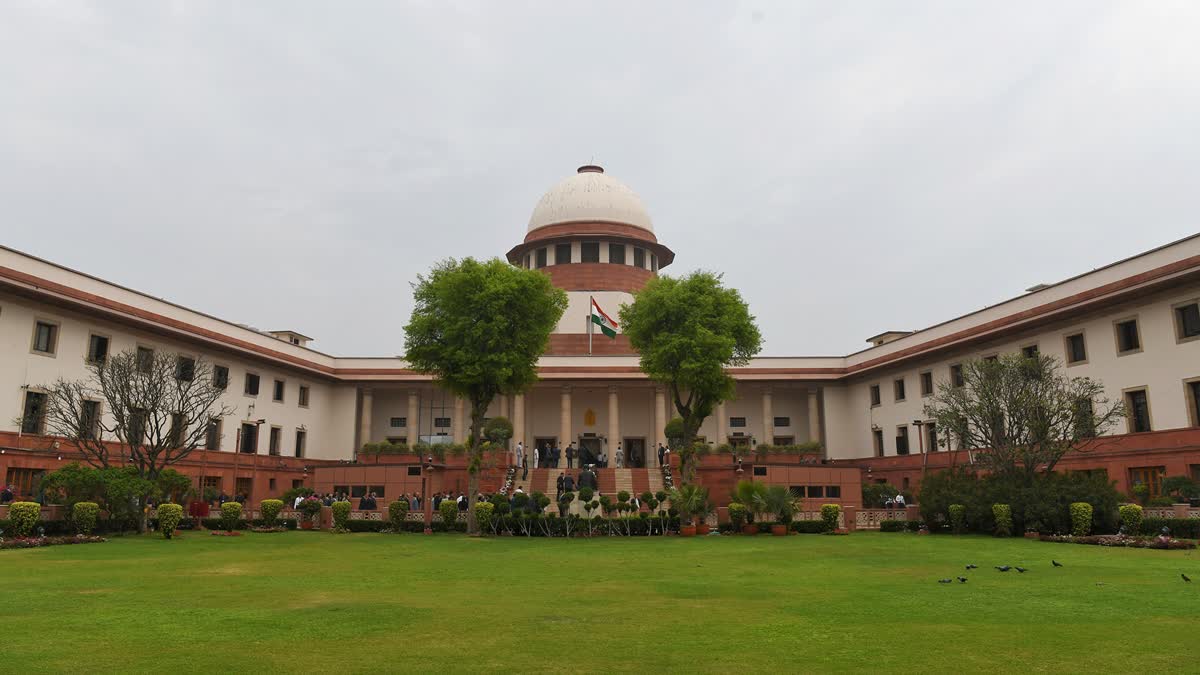New Delhi: The Supreme Court has ruled that service tax would not be applicable to the sale of lottery ticket, as the sale of lottery tickets is not a service in relation to promotion or marketing of service provided by a client, and conducting a lottery, which is a game of chance is ex facie a privilege, an activity conducted by the state and not a service being rendered by the state.
A bench comprising justices B V Nagarathna and N. Kotiswar Singh said: “the States are not rendering a service but engaged in the activity of conducting lottery to earn additional revenue”.
“Moreover, once the lottery tickets are sold by the Directorate of Lotteries—a Department of the State, there is transfer of the title of the lottery tickets to the appellants, who, as owners of the said lottery tickets, in turn sell them to stockists and others. Thus, there is no promotion of the business of the State as its agent”, said the bench, in a judgment delivered on August 8, which was uploaded recently on the apex court's website.
The apex court said there is no ‘principal—agent’ relationship which would normally be the case in a relationship where a business auxiliary service is rendered, and the relationship between the state and the appellants is on a principal-to-principal basis.
“Thus, there is no activity of promotion or marketing of a service on behalf of the State. Neither is the State, which conducts the lottery, rendering a service within the meaning of the Finance Act, 1994”, said the bench.
The apex court said the sale of lottery ticket is an actionable claim and not goods, and it would not be covered under the service tax, and stressed that the conduct of lottery is a revenue generating activity by a state or any other entity in the field of actionable claims.
“This court has by the constitution bench in Sunrise Associates (2006) opined that lottery tickets are actionable claims. The High Courts have also lost sight of the fact that the sale of lottery tickets by the State is a privileged activity by itself and not rendering of a service for which the assessees are rendering promotion or marketing service”, said the apex court.
The apex court said explanation to subclause (ii) of Clause 19 of Section 65 of the Finance Act, 1994 cannot bring within sub-clause (ii) by assuming an activity which was initially sought to be covered under sub-clause (i) thereof but could not be by virtue of the definition of goods under the very same Act read with Section 2(7) of the Sale of Goods Act, 1930.
The bench said mere insertion of an explanation cannot make an activity a taxable service when it is not covered under the main provision (which has to be read into the said sub clause by virtue of the legislative device of express incorporation). “This is because sale of lottery tickets is not a service in relation to promotion or marketing of service provided by a client, i.e., the State in the instant case. Conducting a lottery which is a game of chance is ex facie a privilege and an activity conducted by the State and not a service being rendered by the State”, said the bench.
The apex court said the said activity would have a profit motive and is for the purpose of earning additional revenue to the state exchequer. The apex court made these observations while allowing an appeal by K Arumugam and others, who were carrying on the business of buying and selling of lottery tickets.
The present case was connected with the validity of the explanation added to Section 65 (19) (ii) of the Finance Act, 1994, which was omitted with effect from July 01, 2010, and the case pertains to the period prior to it.
The apex court set aside the judgments delivered by high courts of Kerala and Sikkim. These high courts had held that the appellants were carrying on as a "business auxiliary service" within the definition of Section 65(19) of the Finance Act, 1994 and therefore, chargeable to service tax.




